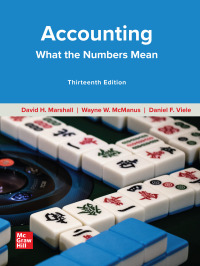Question
Waterways Corporation uses very stringent standard costs in evaluating its manufacturing efficiency. These standards are not ideal at this point, but the management is working
Waterways Corporation uses very stringent standard costs in evaluating its manufacturing efficiency. These standards are not ideal at this point, but the management is working toward that as a goal. At present, the company uses the following standards.
| Materials | ||||||
| Item | Per unit | Cost | ||||
| Metal | 1 lb. | 63 per lb. | ||||
| Plastic | 12 oz. | $1.00 per lb. | ||||
| Rubber | 4 oz. | 88 per lb. | ||||
| Direct labor | ||||||
| Item | Per unit | Cost | ||||
| Labor | 15 min. | $9.00 per hr. | ||||
| Predetermined overhead rate based on direct labor hours = $3.62 | ||||||
The January figures for purchasing, production, and labor are:
| The company purchased 218,200 pounds of raw materials in January at a cost of 78 a pound. |
| Production used 218,200 pounds of raw materials to make 110,000 units in January. |
| Direct labor spent 18 minutes on each product at a cost of $8.70 per hour. |
| Overhead costs for January totaled $30,322 variable and $74,000 fixed. |
Answer the following questions about standard costs.
What is the materials price variance? (Round per unit calculations to 2 decimal places, e.g. 1.25 and final answer to 0 decimal places, e.g. 125.)
| Materials price variance | $ | FavorableUnfavorableNeither favorable nor unfavorable |
eTextbook and Media
What is the materials quantity variance? (Round per unit calculations to 2 decimal places, e.g. 1.25 and final answer to 0 decimal places, e.g. 125.)
| Materials quantity variance | $ | Neither favorable nor unfavorableFavorableUnfavorable |
eTextbook and Media
What is the total materials variance? (Round per unit calculations to 2 decimal places, e.g. 1.25 and final answer to 0 decimal places, e.g. 125.)
| Total materials variance | $ | Neither favorable nor unfavorableFavorableUnfavorable |
eTextbook and Media
What is the labor price variance? (Round per unit calculations to 2 decimal places, e.g. 1.25 and final answer to 0 decimal places, e.g. 125.)
| Labor price variance | $ | Neither favorable nor unfavorableFavorableUnfavorable |
eTextbook and Media
What is the labor quantity variance? (Round per unit calculations to 2 decimal places, e.g. 1.25 and final answer to 0 decimal places, e.g. 125.)
| Labor quantity variance | $ | FavorableUnfavorableNeither favorable nor unfavorable |
eTextbook and Media
What is the total labor variance? (Round per unit calculations to 2 decimal places, e.g. 1.25 and final answer to 0 decimal places, e.g. 125.)
| Total labor variance | $ | Neither favorable nor unfavorableFavorableUnfavorable |
eTextbook and Media
What is the total overhead variance? (Round per unit calculations to 2 decimal places, e.g. 1.25 and final answer to 0 decimal places, e.g. 125.)
| Total overhead variance | $ | FavorableNeither favorable nor unfavorableUnfavorable |
Step by Step Solution
There are 3 Steps involved in it
Step: 1

Get Instant Access to Expert-Tailored Solutions
See step-by-step solutions with expert insights and AI powered tools for academic success
Step: 2

Step: 3

Ace Your Homework with AI
Get the answers you need in no time with our AI-driven, step-by-step assistance
Get Started


